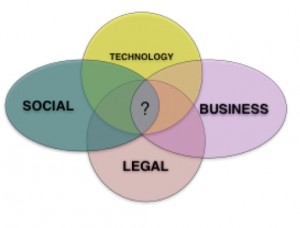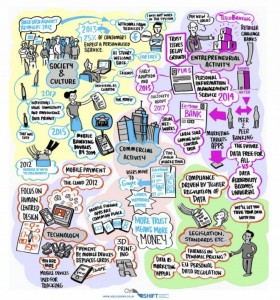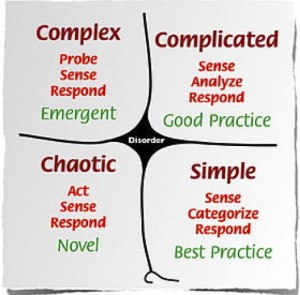When ecosystems in nature are working smoothly, things just flow – it seems simple, but there is much underlying complexity.
Our mission is to catalyze a functioning ecosystem with many parties participating, using a diversity of business models based on open standards, with a core underlying tenet being that people have control over their data.

Getting from where we are now to a thriving personal data ecosystem will take time, trial and error, innovative pilots, and collaboration amongst many different companies. However, almost all of the challenges we face getting there fit into four different issue clusters.
The clusters cannot be solved individually or sequentially – we must work to address challenges across all four in parallel.
What are the right technologies? Protocols for systems to talk to each other (one–off hacks, closed standards, or open ones and then at which standards body) the systems themselves (open source, proprietary).
What are the business models that can work? Is there the potential for a diverse ecosystem with many different industries participating and thriving or will one industry “win” or even one “winner take all”? Are there key non-profit-making entities needed at the core of a thriving ecosystem?
How can the legal issues that come up be addressed? How can large mesh networks of interoperability be brought into being without incurring huge liabilities?
Will people adopt the new innovations? Will people accept or even understand new models of how their data is being handled and used? Will new social norms emerge? What are the user experiences and how can they work for diverse types of people?
It is essential that we not address just one cluster of issues, but support the information sharing and consideration of developments in all of these clusters simultaneously to move the whole industry forward. This is why we cover such a broad range of topics here in the Personal Data Journal, because the challenges can not be addressed in isolation.
I am regularly in conversations with industry leaders who are asking about one small thing they can do, or what is the simple way. It just isn’t simple to get all these different issues “solved.”
However, we are lucky to live at a time when new insights and models have been develop to both conceptually understand and mathematically model these types of systems. One of my favorite thinkers on such topics is David Snowden who developed the Cynefin (pronounced – Kin evin) framework drawing on complex adaptive systems theory understand different types of problems, situations and systems along with solutions that may apply.
The overall personal data ecosystem system that we are working with is emergent although some aspects are just complicated.
Reports will be for global leaders with “simple” calls to action. However, in the end it will take dedicated leadership across new business ecosystems to build new infrastructure, test out new models, deploy existing standards in innovative new ways, and lead the development of new ones needed for interoperable competitive markets.
The path between here and and a working ecosystem with a whole new set of tools for people/citizens to collect and manage their own data is complex. It is quite evident in this diagram which Ctrl-Shift, developed to articulate the range of topics to be covered as part of its Explorer Club in the coming years.

